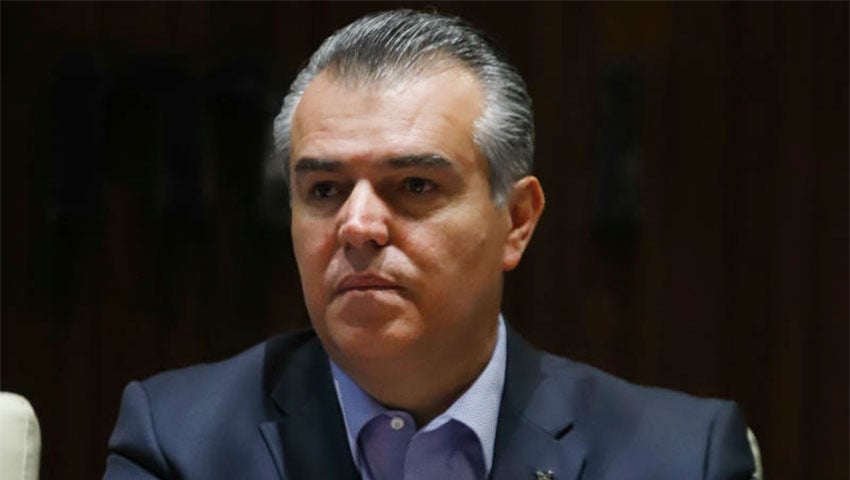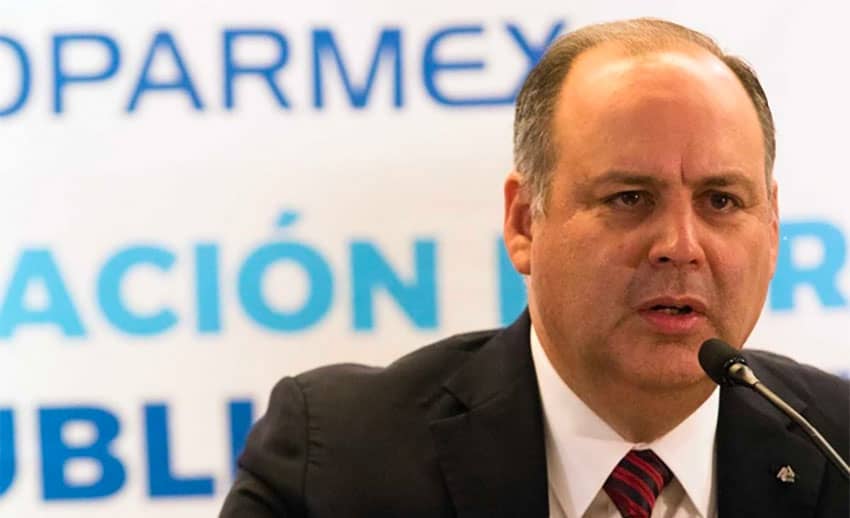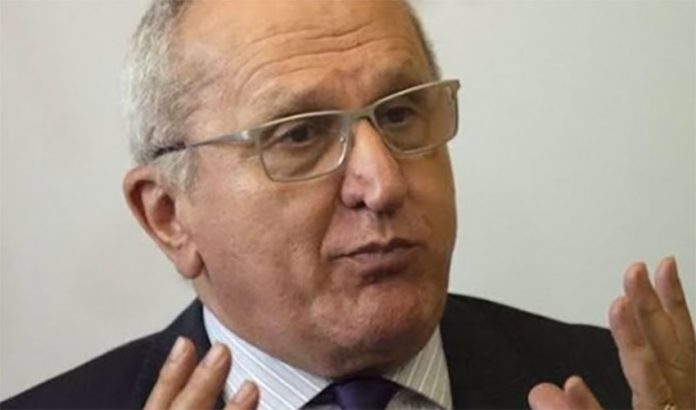Trade negotiator Jesús Seade said on Monday that he was “very satisfied” with assurances from the United States government that U.S. attachés in Mexico will not serve as “labor inspectors” to ensure compliance with the new North American trade agreement.
Seade’s remark came after he met with United States Trade Representative Robert Lighthizer in Washington D.C. to resolve a dispute that briefly threatened to upset plans for the U.S. House of Representatives to approve the United States-Mexico-Canada Agreement (USMCA).
The foreign affairs undersecretary for North America and President López Obrador, among other officials, objected in recent days to implementing legislation sent to the U.S. Congress, saying it represented an attempt to circumvent Mexico’s refusal to allow U.S. officials to carry out unilateral inspections of Mexican workplaces such as factories.
They also said the attaché provision had not been discussed with Mexico. López Obrador said the United States had acted “in a clandestine manner” by sending legislation to Congress that didn’t match the deal reached last week.
Lighthizer clarified in a letter on Monday that up to five Labor Department attachés to be deployed to Mexico will only provide technical assistance and disburse funds to build capacity.

“These personnel will not be ‘labor inspectors’ and will abide by all relevant Mexican laws,” the trade representative wrote in the letter addressed to Seade.
On-site verifications will be carried out by independent three-person panels chosen by both parties “when there are good faith questions about whether workers at a particular facility are being denied key labor rights,” Lighthizer wrote.
The Mexican undersecretary told a press conference in the United States capital that the letter “absolutely” put an end to the dispute between the two countries. “This is very categorical: these personnel will not be labor inspectors,” Seade said.
Trade analysts who spoke to The Washington Post on the condition of anonymity so as to not offend Seade said the squabble between Mexico and the United States over the labor inspector issue reflected domestic politics in both countries.
“The labor attaches’ broad mandate to assist Mexican officials and workers on implementation of Mexico’s sweeping labor reforms may have inflamed Mexican business sensitivities about American influence, which Seade felt obliged to counter,” The Post said.
In the United States, Democrats led by House Speaker Nancy Pelosi pushed hard for a USMCA that ensures that labor laws in Mexico are strictly enforced.
“It looks to me like Seade might have some buyer’s regret and didn’t quite understand how much rope he was giving Lighthizer,” one former U.S. official told The Post.
Critics of the government at home said the problem between Mexico and the United States arose due to naivety and a lack of preparation for trade negotiations on Seade’s part.
Economist and political analyst Macario Schettino said in an opinion piece in the newspaper El Financiero that a December 6 photo that showed Seade arriving alone at Lighthizer’s Washington office filled him with “terror.”
“. . . I have no knowledge of mid-level negotiations that are managed by only one person let alone high-level” ones, he wrote.
Schettino said the Mexican government previously had one of the best international trade negotiating teams in the world but all the officials were dismissed when López Obrador took office. He also noted that the Secretariat of Foreign Affairs rather than the Secretariat of Economy now appears to be in charge of trade negotiations.
El Financiero columnist Salvador Camarena said that if the secretariats of the Economy and Labor had been involved in negotiations with the U.S., Mexico would not have been put in the same position.

He charged that López Obrador has given complete responsibility for the relationship with the United States to Foreign Secretary Marcelo Ebrard and his department to the detriment of the country.
“Last weekend was a scene from a (bad) comedy. Seade didn’t know what he negotiated, Ebrard less so and AMLO [was even] worse . . .” Camarena wrote.
Francisco Cervantes, president of the Confederation of Industrial Chambers, told a press conference on Monday that the provision allowing the United States to send up to five labor attachés to Mexico was in the revised version of the USMCA but Mexican officials failed to interpret it properly.
“. . . It was there the whole time, they didn’t put it in at the last minute . . . It’s a matter of interpretation of texts,” he said.
Another error made by Mexico, according to Mexican Employers Federation president Gustavo de Hoyos, is that Mexico rushed into ratifying both the original and revised versions of the USMCA. That weakened Mexico’s negotiating position in the trade talks, he said.
Like the United States, Canada has not yet ratified the USMCA. Prime Minister Justin Trudeau said on Tuesday that Canada could be the last country to ratify the trilateral pact due to the country’s parliamentary calendar.
However, he expressed confidence that it will be approved and said that his government would “try to get to it as quickly as we can.”
An approval vote by the U.S. House of Representatives is expected on Thursday but ratification by the Senate is not likely until early next year.
The USMCA, an agreement that will govern more than US $1.2 trillion worth of annual trade between the three countries, will replace the North American Free Trade Agreement, or NAFTA, which took effect on January 1, 1994.
Source: The Washington Post (en), Excélsior (sp), El Universal (sp), Reuters (en)
